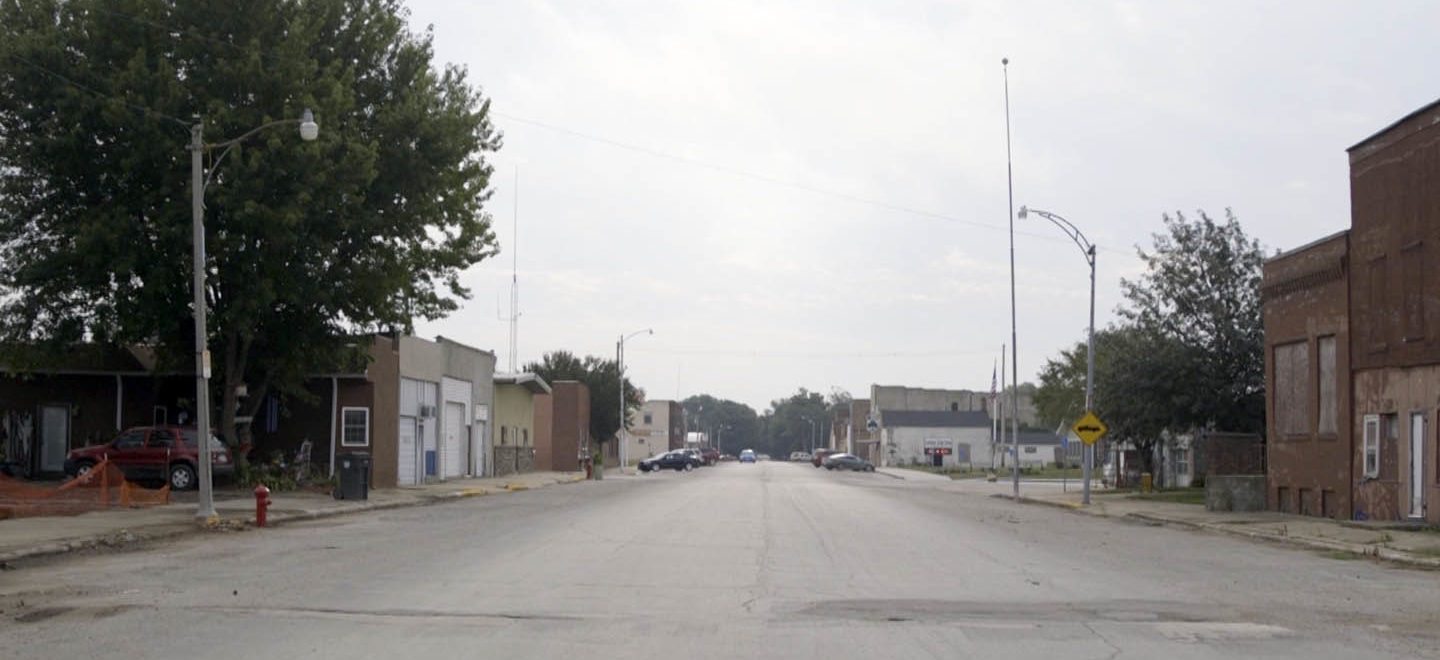“People drive through and they say ‘Oh, Iowa, it’s so beautiful’ and it’s like if you really knew, we can’t drink the water, we can’t breathe the air, you know, the soil is dead. It’s this façade.”
– Denise O’Brien, founder of Women, Food and Agriculture Network
It’s a warm, sunny afternoon, and I’m sitting on Denise O’Brien’s porch in rural Iowa. Denise is an organic farmer who was the 2006 Democratic nominee for Iowa Secretary of State, so she knows a thing or two about agriculture in this state.
As she gently swings back and forth on her bench seat, she tells a story of rural Iowa that is being destroyed by the massive increase in industrial agriculture.
And it’s true what she says. As you drive down the long straight dirt roads in the center of Iowa, it really is a beautiful sight. There’s field after field of tall green crops dancing in the breeze, and especially if you live in a city, that can be such a welcome sight.
The problem is that agriculture in Iowa is dominated by two crops – corn and soybeans. Not that long ago, the average number of crops grown on an Iowa farm was thirty-four. Now it’s two. And that’s a real problem.
When you farm the same crop over and over again, the soil becomes damaged, as you suck up all the nutrients, and don’t replace them. But it’s much more than that.
Ninety-nine percent of cropland in Iowa is sprayed with industrial pesticides. And these toxic chemicals are getting into the water sources and causing large levels of pollution.
The huge shift towards corn and soybean production was prompted by government policies that create a false demand for these products. Policies like the U.S. government’s biofuels mandate, which is behind the huge increase in corn production. In Iowa alone, 40% of the corn grown by farmers is used to make biofuels. So, it’s not as if these crops are needed to feed people here in the U.S. and abroad.
But it doesn’t stop here. A day or so later, I meet Nick Schutt, a third-generation family farmer at his home. Nick runs his own small farm and starts to tell me what this huge expansion in industrial agriculture has meant for him.
He tells me that when he was a kid growing up in the area, he and his friends used to play in a local stream in the village we’ve just passed to get to his farm. That stream doesn’t exist anymore. It has been replaced by what’s called a CAFO – that’s a Concentrated Animal Feeding Operation to you and I. Essentially a whacking great shed where cows and pigs are stacked up in pens for factory style farming.
In Iowa alone, there are 22 million hogs. That’s in a state of a little over 3 million people. Each hog produces 2.5 times the waste of a single human being every year. That’s a lot of animal waste to dispose of, and they do it by spreading it untreated on the surrounding fields.
As you can imagine, when it rains, the waste gets washed straight into the local streams and rivers, which are said to be among the most polluted in the country.
Standing with Nick on his property, he says that we’re the first visitors he has had there in the past few years. The reason for that is that a few hundred yards up the road, there’s a newly built CAFO.
He tells me during the day it’s not too bad, but it’s when night starts to fall that it gets unbearable. It’s already the end of the day when we set up the cameras and start interviewing Nick, and as we get part way through his interview, the light really starts to go.
It’s then that the dew starts to fall and with it comes the most appalling stench. Now, I’ve worked in some of the world’s poorest communities in areas with open drains and no proper waste disposal systems, but the smell of a few thousand cows is really quite overwhelming.
The problems that Nick and others living in Iowa are having to face are all part of our broken food and farming system. Government policies are incentivizing the growing of corn and soybeans, and farmers are having to make their farms bigger and more specialized just to make ends meet.
And it’s a similar problem for farmers around the world, many of whom are facing agribusiness pressure to grow their farms or get off their land. Rural communities in Iowa and around the world are in decline, as big farms take over, polluting the local environment and raising rural poverty.
We need a new farm policy that stops pushing overproduction and environmental exploitation at the expense of people and our planet. Without it both farmers and eaters are losing out.



